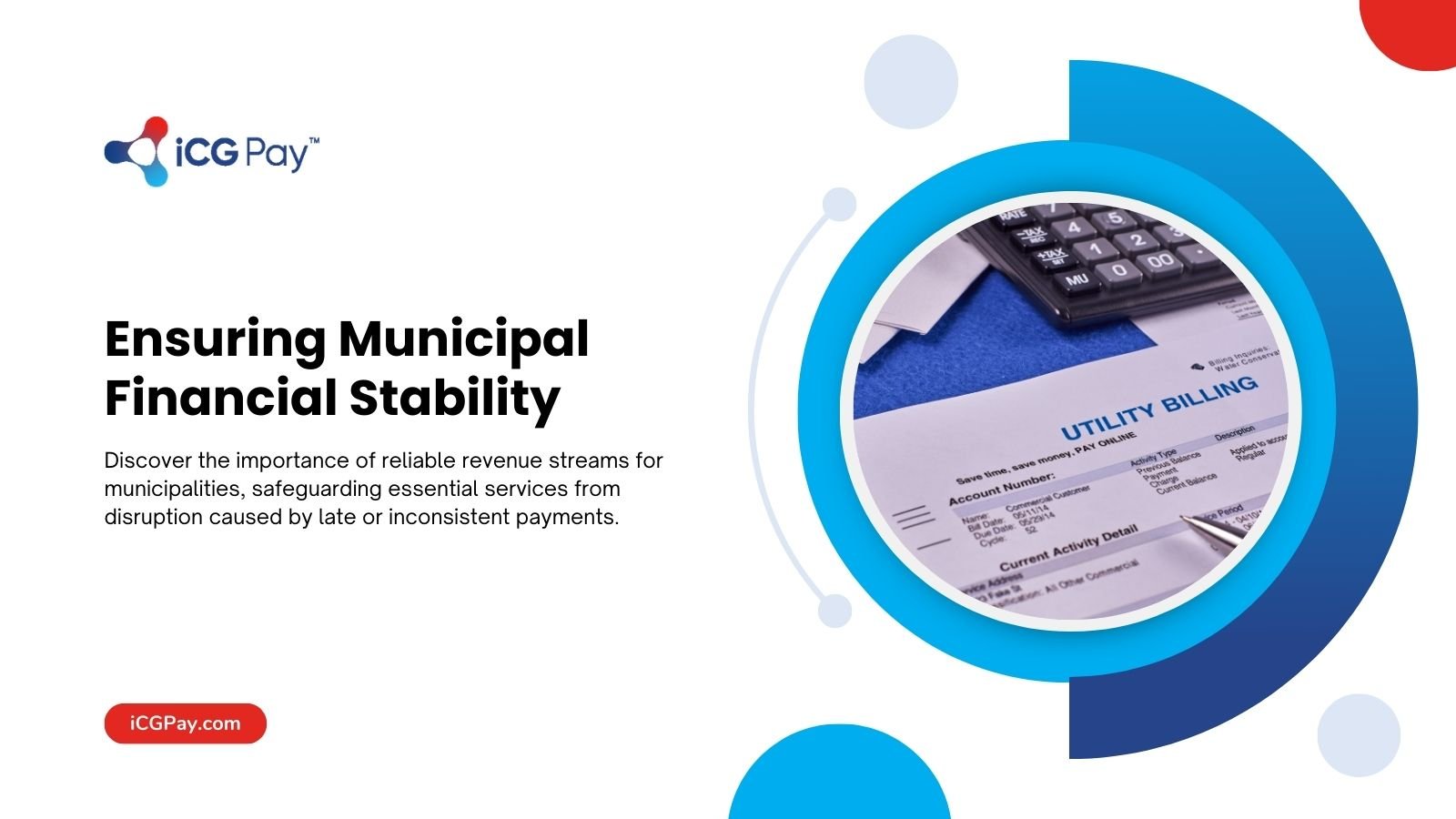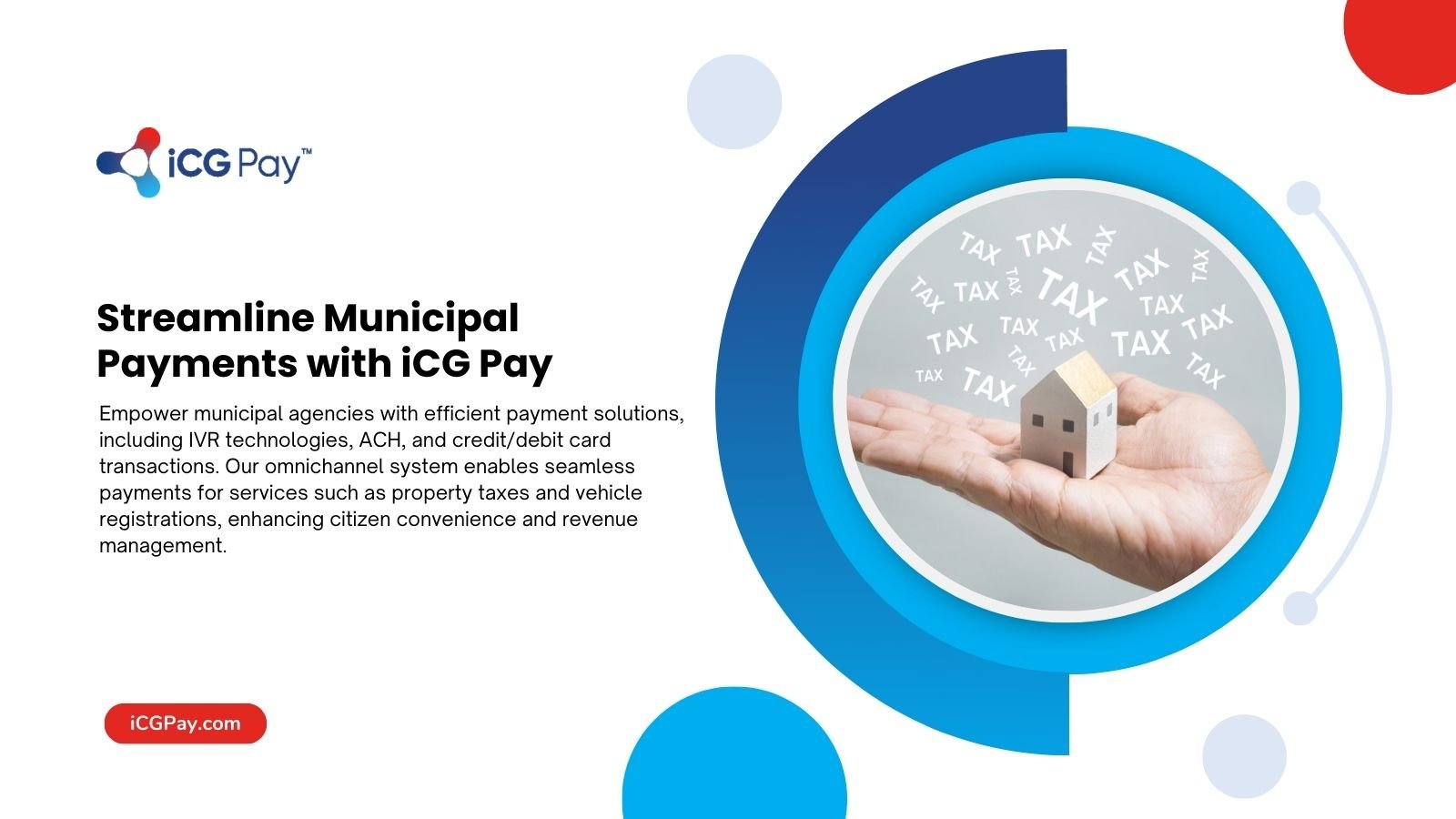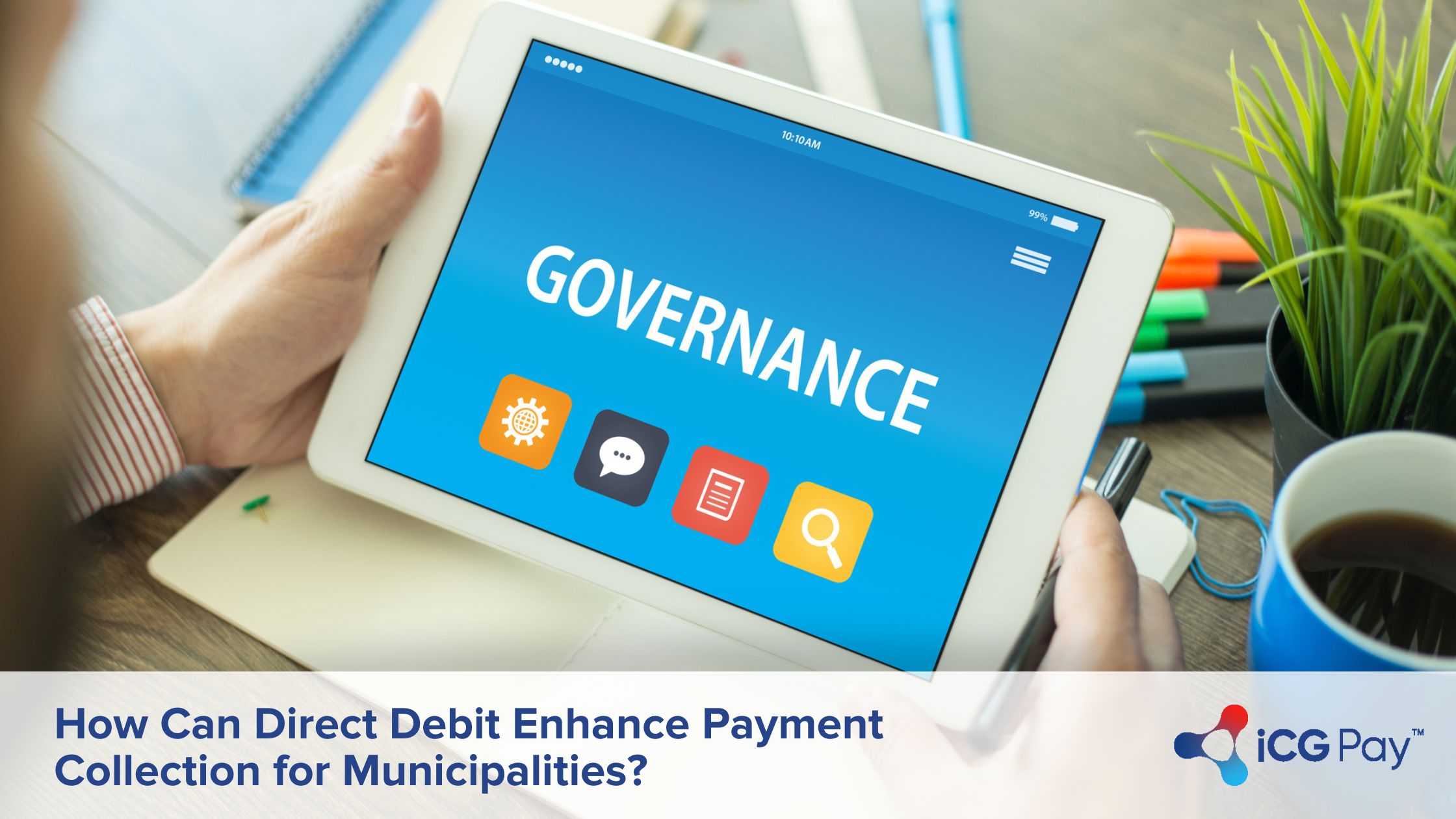Municipalities offer a diverse range of essential services, from garbage collection and water supply to road maintenance and public safety. However, they must have a steady revenue stream to sustain these services. Late or inconsistent payments from residents can disrupt budget planning and hinder the delivery of crucial amenities.

These municipal offices leverage modern payment solutions like direct debit to enhance payment collection. ACH direct debits have become a key payment method in this sector. Data by Nacha shows that in the fourth quarter of 2023, the ACH network processed 8.1 billion payments with a total value of $20.5 trillion.
Direct debit offers convenience for both residents and local governments. By authorizing automatic withdrawals from their bank accounts, citizens can ensure timely payments, improving cash flow predictability for municipalities.
Therefore, municipalities need to partner with reliable payment gateways like iCG Pay, formerly iCheckGateway.com, to streamline payment collection via direct debit.
Let's delve into how direct debit enhances payment collection for municipalities, exploring its benefits and implementation strategies.
What Is Direct Debit?
A direct debit is an electronic transaction that allows businesses to withdraw funds directly from a customer's bank account. Since it’s an automated payment, the payer or customer grants permission to another party, which could be a utility, insurance company, municipal office, or landlord, to deduct recurring payments at regular intervals.
These transactions are completed via the ACH network, making it easy for residents to pay bills, taxes, or fees owed to the municipality. A direct debit is a convenient payment option because it reduces the hassle of manual payments. The payer just needs to provide the bank details once, and the deduction will be debited at the predetermined time.
Some of the common bills residents pay with direct debit include:
- Utility bills
- Subscriptions
- Parking tickets
- Car loans
- Building permits
- Insurance
- Supply payments
Additionally, they are governed by strict regulations to protect consumers' financial information and provide recourse in case of errors, making them a secure option for residents and local governments.

How Do You Collect Municipal Payments by Direct Debit?
The ACH network connects financial institutions and helps coordinate funds transfers between two bank accounts. Collecting payments by direct debit involves these steps:
- Payment authorization: The payer or resident must authorize the direct debit by providing their bank account details and granting permission for the municipality to initiate withdrawals.
- Agreement setup: The payer and municipality agree on the terms of the direct debit, including the frequency and amount of payments.
- Submission of authorization form: The resident must provide some details for the direct debit to be processed. This authorization form typically includes the bank account information and the terms of the agreement. The bank verifies the mandate and sets up the direct debit authorization.
- Payment initiation: The municipality initiates the payment request on the agreed-upon dates through the ACH network.
- Funds transfer: The bank debits the specified amount from the payer's account and makes the transfer. Thanks to open banking, financial institutions can share required data.
- Notification: Both the citizen and recipient receive notifications of the transaction, providing details such as the amount debited and the transaction date.
What Are the Advantages of Direct Debit for Municipalities?
Direct debit offers numerous advantages for municipalities, streamlining payment collection processes and enhancing financial management. Here are five key benefits:
Improved Cash Flow Predictability
Late payments can affect different areas of business, especially the cash flow. A survey by Intuit Quickbooks shows that about 70% of businesses surveyed were negatively affected by late payments. Additionally, 40% of businesses could be forced to close down operations in the next year if the problem persisted.
Direct debit solves this problem by enabling municipalities to predict their cash flow more accurately. Thanks to scheduled payments, municipalities can anticipate when funds will be received, facilitating better budgeting and financial planning. This predictability allows for more effective resource allocation towards essential services.
Automated Operations
Direct debit significantly reduces the administrative burden associated with payment collection. Unlike traditional methods that use manual invoicing or paper checks, direct debit uses the ACH network to speed up the payment process. This lowers the transaction fees.
When all processes are automated, this minimizes the need for manual data entry, invoice generation, and follow-up on late payments. Municipal staff can redirect their time and resources towards more strategic tasks, improving operational efficiency.
Enhanced Security
Like other ACH payments, direct debits are governed by Nacha security measures. Therefore, they are highly secure and have robust protection against fraud. To enhance security further, you should partner with a reputable payment processor like iCG Pay, which gives you access to PCI-compliant features like tokenization and encryption.
Additionally, direct debit mandates require explicit authorization from residents, ensuring that payments are made with their consent. This enhanced security maintains the integrity of municipal payment systems.
What Are the Advantages of Direct Debit to Residents?
Direct debit offers several advantages for consumers, contributing to a more convenient and streamlined payment experience. Here are the key benefits:
Convenience
Online payment options allow citizens to handle transactions without staff assistance. Once residents set up a direct debit, paying bills becomes much easier because they no longer need to manually initiate payments or remember payment deadlines.
Instead, payments are automatically deducted from their bank accounts on scheduled dates. This convenience saves consumers time and effort, reducing the likelihood of missed payments.
Reduced Risk of Late Payments and Penalties
Direct debit significantly reduces the risk of late payments and associated penalties. By automating the payment process, residents ensure that their bills, taxes, or fees are paid on time. This way, they can avoid the inconvenience and financial consequences of missed deadlines. This helps consumers maintain a positive payment history, improving their credit scores and overall financial health.
Enhance Your Payment System with iCG Pay
Municipal agencies can manage their payment collection by adopting the right payment technologies. A partnership with iCG Pay simplifies municipal payments and supports different payment solutions, including IVR technologies, ACH, credit, and debit card transactions. With our omnichannel system, citizens can easily pay for services like property taxes and vehicle registrations online or by phone.
Consult our team of experts to set up direct debit payments for your municipal office.





